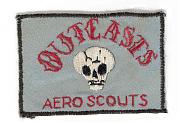I would tend to agree with this, Steve. Most folks I've come into contact with overseas might want parts of the "American Experience," but that doesn't mean they want the whole thing. Our political system is pretty much unique to us, and many of its concepts do not translate well to other locations. The same thing goes for our social systems and networks. People ARE different, no matter how much we may wish it were otherwise, and not everyone aspires to "Be Like Mike" or whatever slogan you choose. The demise of history education in our schools may have something to do with this, combined of course with the cultural jingoism that has haunted America almost since its beginnings. There's also, I think, a distinct feeling of inferiority (not spoken of but certainly there) when dealing with other powers and countries, especially those in Europe.
The "War of Ideas" as it exists now is, to me, very Ameri-centric and deals with flawed assumptions. It's also incomplete. By way of a muddled example, when I was in Germany in the early 1980s "Dynasty" and "Dallas" were both immensely popular on German TV. Many of the people I met there were convinced that all Americans were rich, slept with each others' wives or close relations, and were always scheming about something. These days they get their "informed views" about America from MTV, Jerry Springer, and Desperate Housewives, not to mention our movies (there's an old Tank McNamara cartoon that ties to this...he reassures Japanese visitors to the LA Olympics by telling them that Harry Calahan is in charge of security

). Most of our IO stuff doesn't even seem to acknowledge this, let alone understand it.







 ). Most of our IO stuff doesn't even seem to acknowledge this, let alone understand it.
). Most of our IO stuff doesn't even seem to acknowledge this, let alone understand it.






Bookmarks